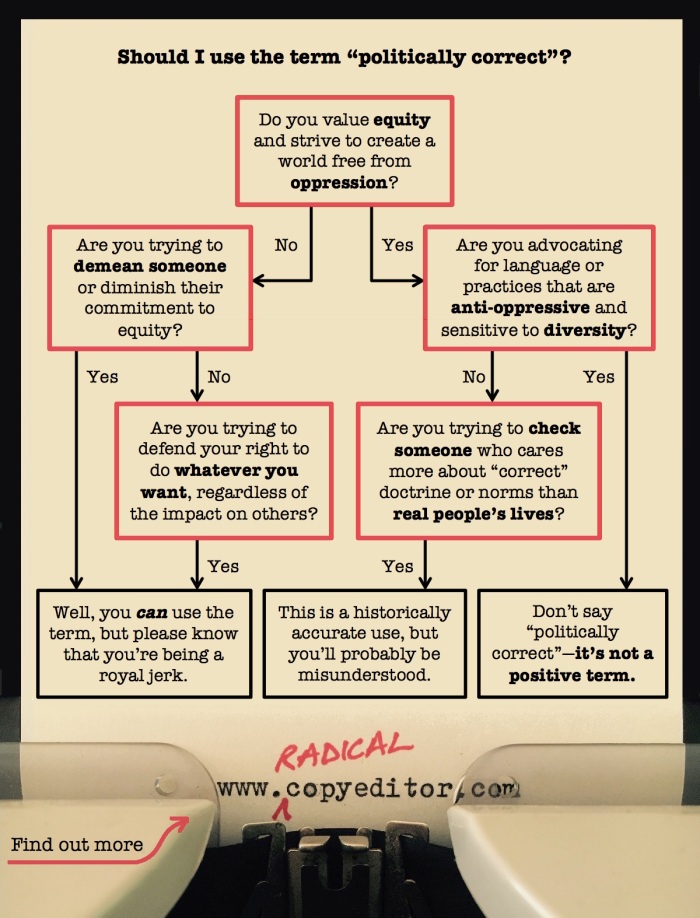
“Politically correct.” It’s a term used widely by everyone from right-wing pundits to preachers to diversity trainers, and pops up in myriad scenarios. It’s every bit as loaded as a baked potato, but nowhere near as delicious.
I’m here with a message about “politically correct” for folks like me who want to use language in ways that increase respect, rather than deepen divides. To quote the great Inigo Montoya, I do not think it means what you think it means.
The term has been in vogue for the last twenty-five years or so among conservatives to describe a mythological fascism on the Left—the false idea that liberals, progressives, and radicals are trying to restrict free speech and strictly prescribe what people can and can’t say.
One effect of this constant barrage from the Right is that some people who genuinely care about using language in ways that are sensitive and inclusive of historically dismissed experiences have accepted the “PC” badge, and believe that political correctness is a real thing worth fighting for.
It isn’t.
Here’s why, in five short parts:
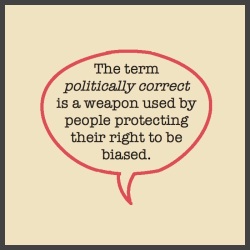
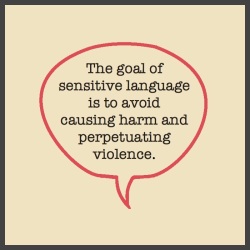
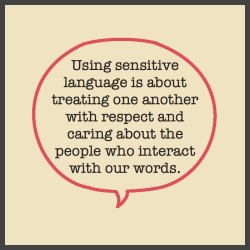
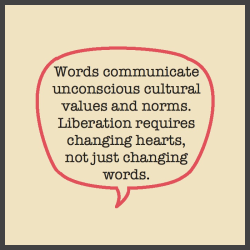
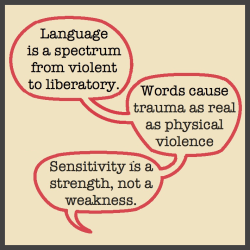
[Description of featured image above: Flowchart for whether to use the term “politically correct” or not. Possible answers: (a) “Well, you CAN use the term but please know that you’re being a royal jerk” (if you answered NO to valuing equity and a world free from oppression but YES to wanting to either demean someone’s commitment to equity or defend your right to do whatever you want regardless of the impact on others), (b) “Don’t say ‘politically correct’—it’s not a positive term” (if you answered YES to valuing equity and YES to advocating for language that is anti-oppressive and sensitive to diversity), and (c) “This is a historically accurate use, but you’ll probably be misunderstood” (if you answered YES to valuing equity and NO to advocating for sensitive language but YES to wanting to check someone who cares more about “correct” doctrine or norm’s than real people’s lives).]